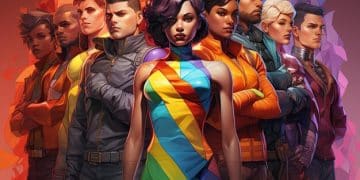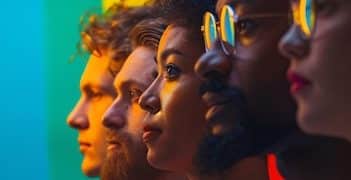LGBT LoL Esports: Adapting to Riot’s 2025 Diversity Policies in the US
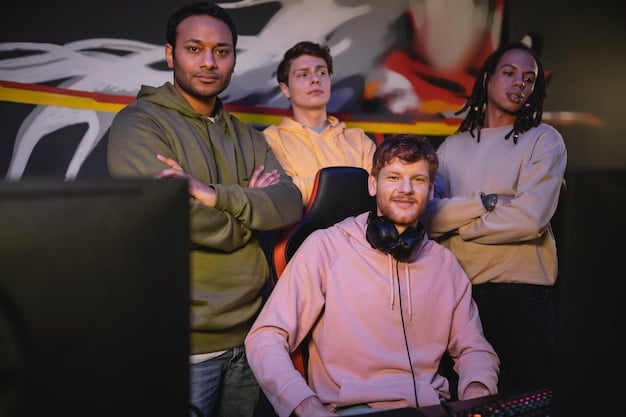
LGBT League of Legends esports teams in the US are adapting to Riot Games’ 2025 diversity and inclusion policies through inclusive team building, diverse talent sourcing, and advocating for policy changes to foster a more equitable and supportive environment.
The landscape of esports is evolving, and with it, the expectations for diversity and inclusion. Let’s delve into how LGBT League of Legends esports teams in the US are adapting to the new Riot Games diversity and inclusion policies for 2025.
Understanding Riot Games’ Diversity and Inclusion Policies
Riot Games has rolled out new diversity and inclusion policies aimed at fostering a more equitable and supportive environment in esports. These policies address various aspects, from team composition to competitive opportunities. These policies have a significant impact on LGBT League of Legends esports teams in the US.
Key Components of the Policies
Riot’s policies encompass several critical areas designed to promote diversity and inclusion. Understanding these components is essential to grasp how LGBT teams are adapting.
- Inclusive Team Building: Policies encourage teams to actively build inclusive environments that respect and value diverse identities.
- Diverse Talent Sourcing: Riot is pushing for teams to source talent from a wider range of backgrounds, including LGBT communities.
- Equitable Opportunities: The policies aim to ensure equal opportunities for all players, regardless of sexual orientation or gender identity.
By implementing these policies, Riot Games hopes to create a more welcoming and fair environment for LGBT players and teams.
Building Inclusive Team Environments
Creating an inclusive team environment is paramount for LGBT League of Legends esports teams. This involves fostering a culture of respect, understanding, and support.
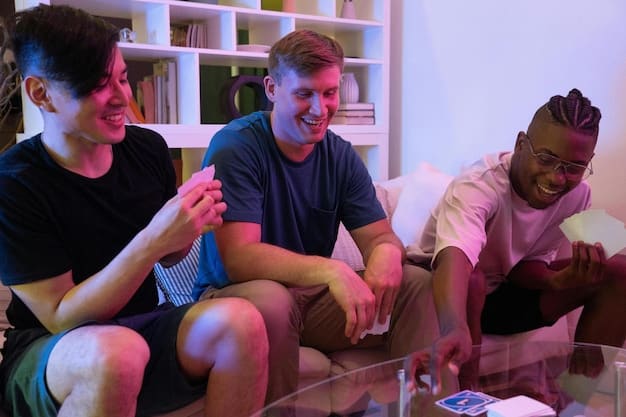
Promoting Awareness and Education
Many teams are investing in awareness and education programs to help team members better understand LGBT issues. These programs can include workshops, seminars, and guest speakers.
Establishing Safe Spaces
Creating safe spaces within the team structure is crucial. These spaces provide LGBT players with a supportive network where they can express themselves freely without fear of judgment or discrimination.
- Confidential Support Systems: Teams are implementing confidential support systems, such as counselors or mentors, to assist LGBT players.
- Open Communication Channels: Encouraging open communication channels allows players to voice concerns and share experiences.
- Zero-Tolerance Policies: Enforcing strict zero-tolerance policies against harassment and discrimination is vital.
Teams that prioritize these initiatives tend to foster more cohesive and successful environments.
Sourcing Diverse Talent and Representation
One of the significant challenges is ensuring diverse talent representation within esports teams. Actively sourcing LGBT players can enhance team dynamics and performance.
Outreach Programs and Initiatives
Teams are launching outreach programs to connect with LGBT gaming communities. These initiatives aim to identify and recruit promising talent that might otherwise go unnoticed.
Partnerships with LGBT Organizations
Collaborating with LGBT organizations can provide teams with valuable resources and support in their recruitment efforts. These partnerships can also help teams build trust within the LGBT community.
Teams that successfully source diverse talent often find a competitive edge through varied perspectives and enhanced problem-solving skills.
Advocating for Policy Changes and Support
Beyond internal team adjustments, LGBT League of Legends esports teams are playing a pivotal role in advocating for policy changes and broader industry support.
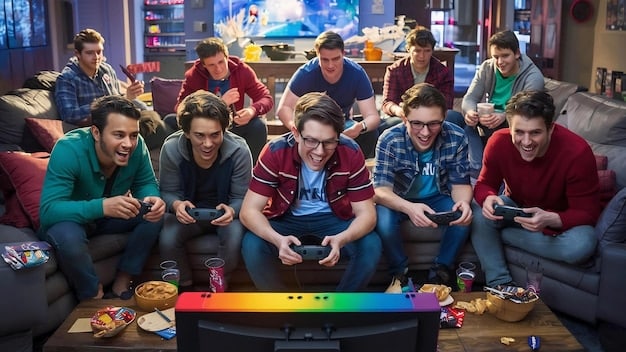
Engaging with Riot Games
Teams are actively engaging with Riot Games to provide feedback on diversity and inclusion policies. This collaboration ensures that policies are effective and responsive to the needs of LGBT players.
Supporting LGBT Advocacy Groups
Many teams are publicly supporting LGBT advocacy groups, lending their voices to broader campaigns for equality and inclusion. This support can range from financial contributions to promotional partnerships.
Raising Awareness Through Public Platforms
Leveraging their platforms to raise awareness about LGBT issues is another strategy teams are employing. This includes using social media, streaming channels, and public appearances to promote inclusivity.
By advocating for policy changes and support, LGBT teams are helping to shape a more inclusive future for esports.
The Impact on Team Performance and Dynamics
The adaptation to new diversity and inclusion policies has had a tangible impact on team performance and dynamics. Inclusive teams often experience improved communication, cohesion, and overall morale.
Enhanced Communication and Collaboration
When team members feel valued and respected, they are more likely to communicate openly and collaborate effectively. This leads to better decision-making and strategic gameplay.
Increased Team Cohesion and Morale
Inclusive environments foster a sense of belonging, which can significantly boost team cohesion and morale. Players who feel supported are more motivated and committed to the team’s success.
- Reduced Conflict: Teams with strong inclusivity policies often experience fewer conflicts related to identity or background.
- Improved Mental Health: Players in supportive environments tend to report better mental health and overall well-being.
- Higher Retention Rates: Inclusive teams are more likely to retain talent, as players are less likely to seek out more welcoming environments elsewhere.
The positive impact of diversity and inclusion on team performance is becoming increasingly evident in the esports industry.
Challenges and Opportunities Ahead
While significant progress has been made, LGBT League of Legends esports teams still face challenges as they adapt to new diversity and inclusion policies. However, these challenges also present opportunities for further growth and development.
Overcoming Resistance and Bias
Despite growing acceptance, some players and fans may resist or express bias against LGBT individuals. Teams must be prepared to address these issues head-on through education and enforcement of anti-discrimination policies.
Ensuring Long-Term Sustainability
Maintaining diversity and inclusion efforts over the long term requires ongoing commitment and investment. Teams must develop sustainable strategies to ensure that these policies remain effective and relevant.
Addressing these challenges will be crucial for LGBT teams as they continue to navigate the evolving esports landscape.
Conclusion
Adapting to Riot Games’ 2025 diversity and inclusion policies is a multifaceted process for LGBT League of Legends esports teams in the US. It involves building inclusive team environments, sourcing diverse talent, advocating for policy changes, and addressing ongoing challenges. By embracing these strategies, teams can foster a more equitable and supportive esports community, ultimately enhancing team performance and dynamics.
| Key Point | Brief Description |
|---|---|
| 🤝 Inclusive Teams | Teams creating environments where LGBT players feel valued and respected. |
| ⭐ Diverse Talent | Actively recruiting LGBT players to enhance team dynamics and performance. |
| 📣 Policy Advocacy | Supporting policy changes for a more inclusive esports industry. |
| 🧠 Education Programs | Implementing awareness programs to educate team members on LGBT issues. |
Frequently Asked Questions
▼
Riot Games’ policies aim to create a more equitable esports environment by promoting inclusive team building, diverse talent sourcing, and equal opportunities for all players, regardless of sexual orientation or gender identity.
▼
Inclusive teams experience improved communication, cohesion, and morale. Players feel valued and are more likely to collaborate effectively, leading to better decision-making and strategic gameplay.
▼
Teams are launching outreach programs to connect with LGBT gaming communities, partnering with LGBT organizations for recruitment, and actively seeking out promising talent that might otherwise go unnoticed.
▼
Teams engage with Riot Games to provide feedback on policies, support LGBT advocacy groups, and use public platforms to raise awareness about LGBT issues, promoting inclusivity and equality in esports.
▼
Challenges include overcoming resistance and bias from some players and fans, ensuring long-term sustainability of diversity efforts, and maintaining commitment and investment in inclusive strategies.
Conclusion
The adaptation of LGBT League of Legends esports teams to Riot Games’ diversity and inclusion policies demonstrates a commitment to creating a more equitable and supportive environment. By embracing these policies, teams not only enhance their performance but also contribute to a more inclusive esports community.

